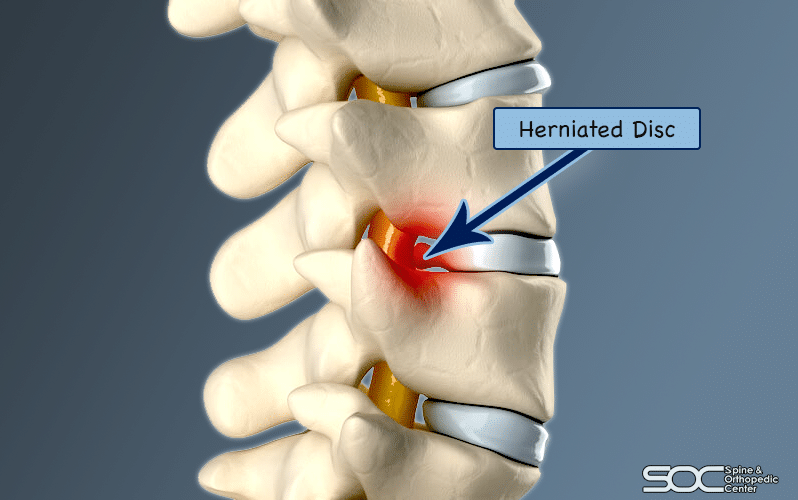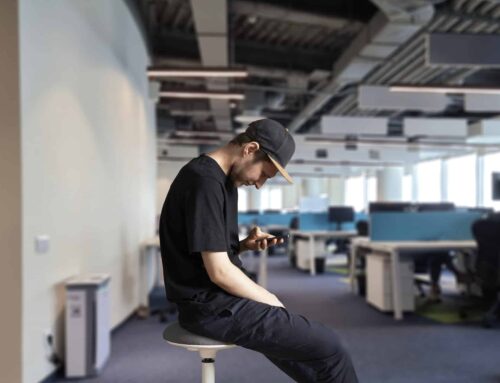What are Common Minimally Invasive Lumbar Disc Herniation Procedures?
A disc compression and fracture located between the two vertebrae is the leading cause of a herniated disc. In fact, the inner gel from the disk escapes into the spinal canal when this occurs. Therefore, impacting the nerve. One of the most usual sites for the herniated disc is in the lower back (lumbar spine.)
Patients who are diagnosed with a herniated disk have reported experiencing lower back pain. However, sometimes they can also feel pain radiating to the buttocks and legs. When a cause is significant, the herniated disc can cause numbness or tingle in the foot. If you experience these symptoms, consult your doctor to determine the cause. Your doctor should order an MRI test to diagnose your condition and recommend treatment.
Causes of a Herniated Disk in the Lumbar Spine
A common area for herniated discs is in the lumbar spine. Herniated discs are typically caused by injury or spinal degeneration. However, it’s hard to determine what exactly caused your herniated disc. At times, using your back muscles instead of your leg and thigh muscles to lift large, heavy objects can lead to a herniated disc. As can twisting and turning while lifting. Another common cause for a herniated disk is spinal degeneration. This is normal age-related wear and tear of the spine. As you age, your spinal discs will lose water. In turn, this makes them less flexible and more prone to tearing or rupturing.
The lumbar spine is responsible for supporting the body’s weight. And allowing the flexibility and mobility of the body. When bodyweight increases, the vertebrae in the spinal cord has to support more weight. Therefore, these vertebrae are then compressed. The added bodyweight then causes the disc in between each vertebra to flatten and stretch. An illustration of how the disk is being compacted between the vertebrae is when you gently press a piece of molding clay between your hands.
Gradually, as the vertebrae continue to compress, the hard outer shell of the disc may crack. This allows the jellylike fluid inside the disc to flow into the spinal canal. If the fluid presses onto the nerve root in the spinal canal, the patient may experience chronic pain. Although, if the herniated disk is located in the lower part of the lumbar spine and impacts the sciatic nerve, that is called sciatica.
If you feel herniated disk symptoms in your lumbar spine or sciatic symptoms, contact a spine specialist regarding treatment options. There are many available options to treat mild to severely herniated discs.
Treatment Options for a Lumbar Herniated Disc
Patients who have a mildly herniated disk can receive pain relief through conservative treatment. These treatments include ice, heat, and physical therapy. Although therapy is effective for some mild conditions, not everyone finds permanent pain relief.
Have you tried conservative treatments and did not find long-lasting pain relief? Then, it might be time to consider surgical options for the herniated disc.
Lumbar Herniated Disc Minimally Invasive Procedures
For the majority of the patients, back surgery is considered a “last resort.” However, it is common for surgery to be explored if your condition is severe. Or, if the treatments have already been administered show no pain-relief.
There are two types of surgeries for lumbar herniated discs. The first is minimally invasive decompression surgery. Additionally, there is minimally invasive stabilization surgery. When this procedure is chosen, it’s due to the severity of the condition.
Furthermore, mild cases of a lumbar herniated disc will most likely be treated with a discectomy procedure. However, a discectomy is one of the most common minimally invasive spine decompression operations. So, in this procedure, a portion of the herniated disc will be removed. This is performed to decompress the nerve in the spinal canal. The operation will be carried out with a small 1-inch incision.
In other cases, you may have to undergo a minimally invasive stabilization operation. This type of procedure involves a less invasive alternative to traditional spine fusion.
For a spine specialist in the South Florida area, contact us at 1-888-409-8006. Offices located in Boca Raton, Deerfield Beach, Coral Springs, and Plantation.







Leave A Comment